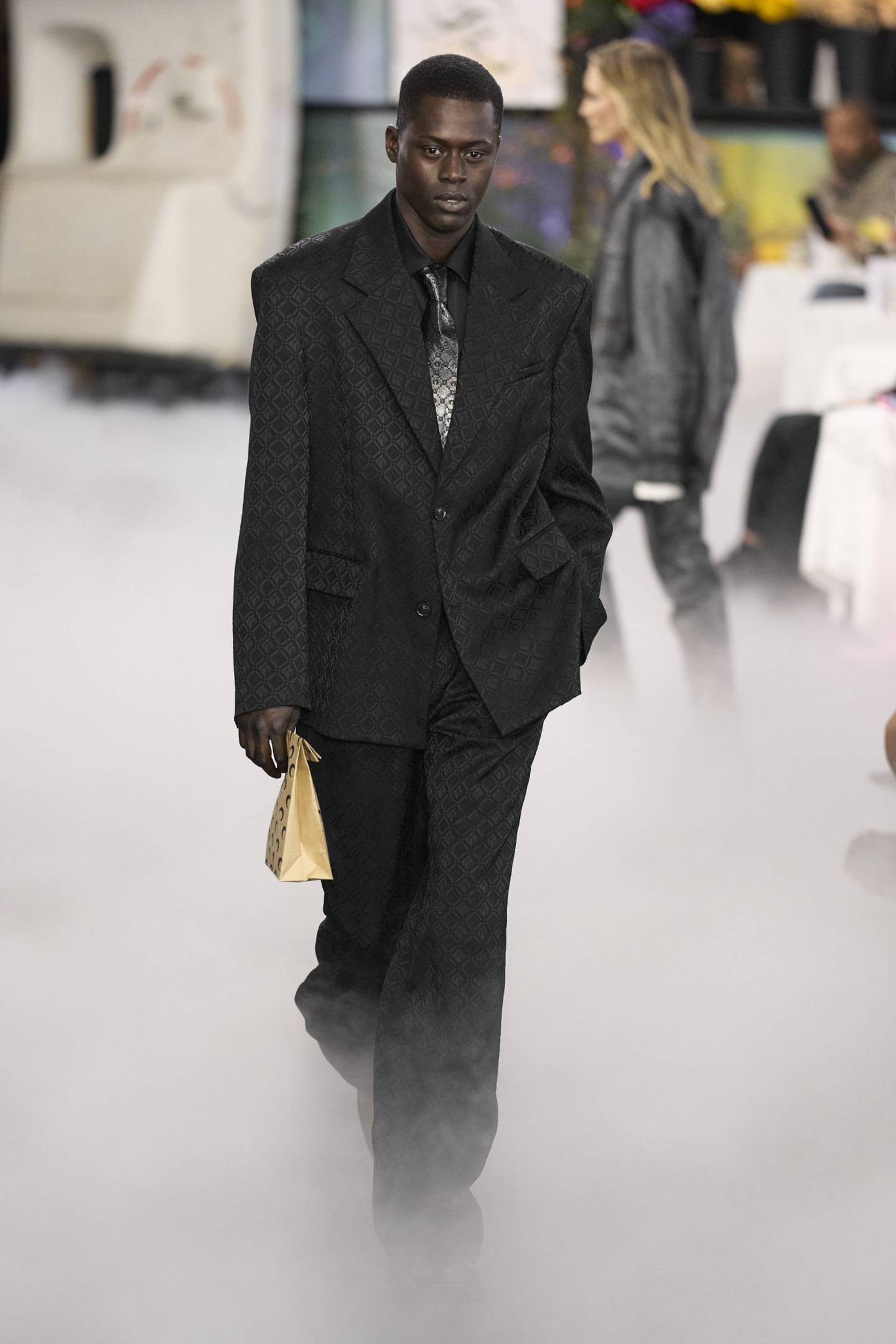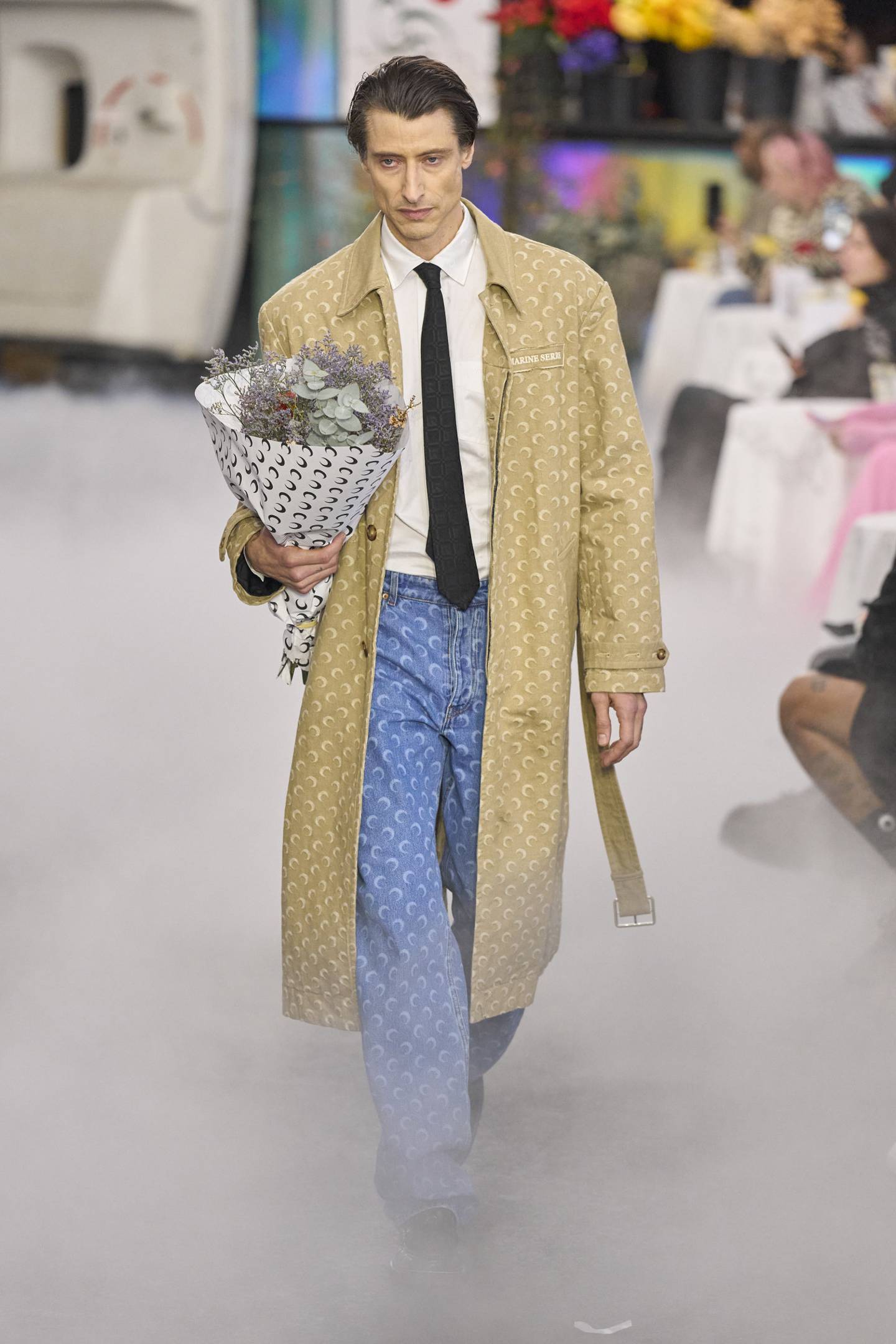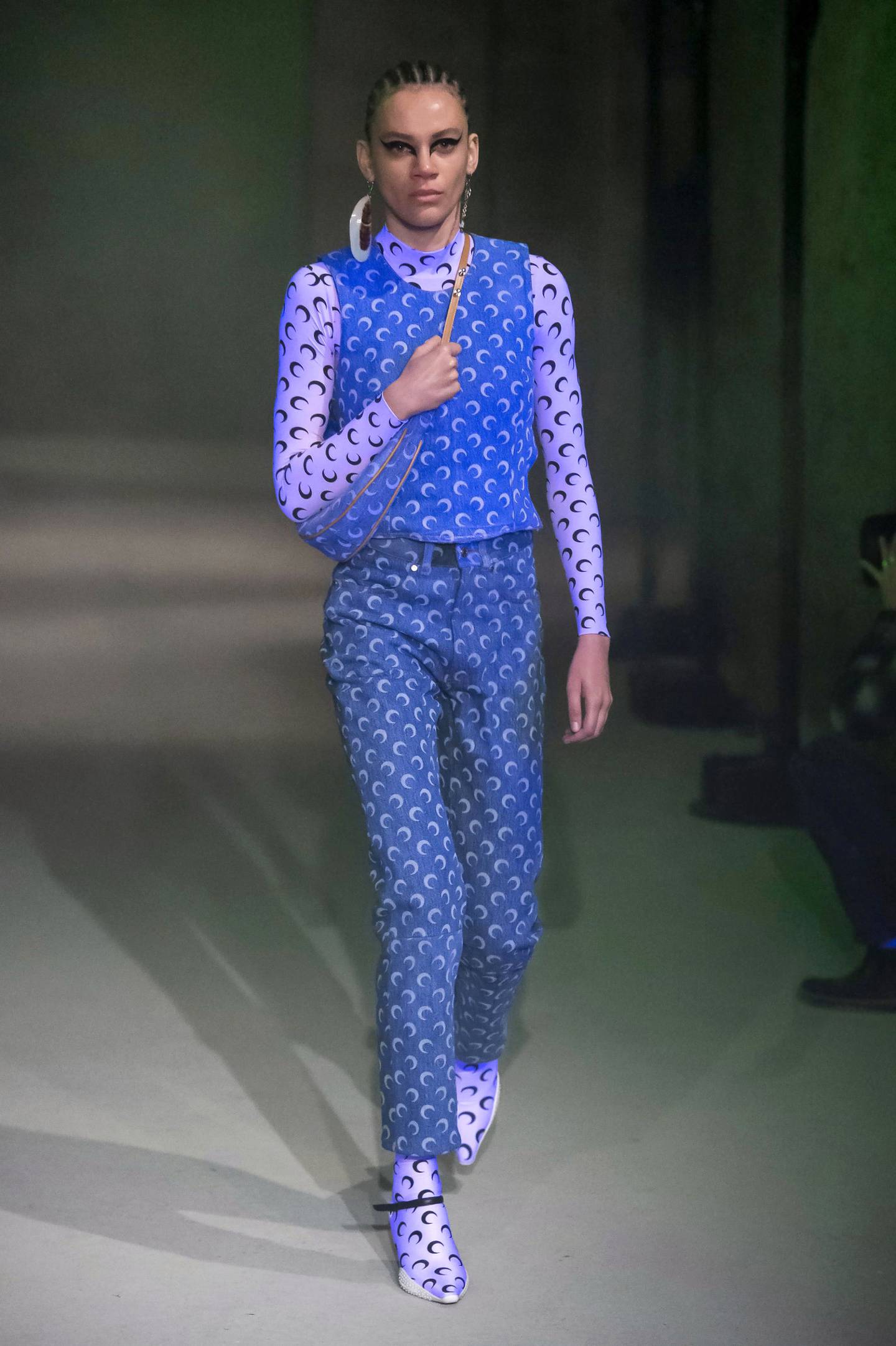
PARIS — Today’s announcement that Marine Serre will be Pitti Uomo’s next guest designer, is some kind of special way for the French designer to tell the world about her new men’s collection. Men have always played a part in her shows — she’d even taken to showing her collections on the men’s calendar — but it was only two months ago that she launched an entirely separate menswear range. And now this, already.
“Pitti is one of the magical places to make a first menswear show,” Serre marvels. “They contacted me, simple as that.” But it could be that she is in her own magical place, where good things just keep happening. Sales were up 20 percent in 2023. She launched her first “retail experience” at Galeries Lafayettes in December. And on top of her blooming business, fashion’s erstwhile Crown Princess of Dystopia has also switched conceptual gears.
Once upon a time, Serre sounded the alarm about the future in provocative shows like Autumn/Winter 2009′s stunning “Radiation,” which conjured post-apocalyptic worlds from the detritus of this one. (I think she’d prefer to call it “upcycling.”) This phase crescendo-ed with “Amor Fati,” the film she released during the pandemic. But she followed that with “CORE,” a collection, film and book which celebrated the community, the humanity at the heart (the core) of her brand. And at her women’s show a month ago, she talked about the process by which her dystopic outlook was replaced with an everyday kind of utopianism.
Earlier this month, Serre showed in a community space converted from an old railway warehouse in Paris. The audience was ringed by a café, a bar, a florist, a pizzeria, the sort of concessions that serve locals. She wanted a communal experience, and there was a charming sense of street life to the proceedings. 3000 people answered her Instagram call for models. “My duty now is to bring 10 minutes of joy,” she said before the show.
In hindsight, she acknowledges that it may not have been her best collection, but it made people happy, and she’d love to sustain that mood at Pitti. She visited Florence for the first time to scout locations and found somewhere with an incredible view and an all-important connection with nature. Beyond that, she’s not about to spoil the surprise.
The Paris show marked Serre’s return to the women’s calendar. She felt the move was significant. “It’s super-important for me as a woman to design for women.” Women dominate her brand, both in terms of the team (six of her eight board members and 65 percent of her employees are female) and the direction of the company.
So menswear is a departure. The clear separation of the two collections reflects Serre’s own conviction that they dress very differently. “I like women who assume their femininity and I like men who assume the fact they are men. As a designer, I know you can’t really design the same way… so much depends on the shape of your body. For this reason, I need to separate both the collections because it does not always work aesthetically.”
“I don’t think I understand men more than women for sure,” Serre continues, “but I am someone who is really happy to get feedback. When I designed with A$AP Rocky, I never had problems designing for men with another guy telling me what they like or don’t like.” She’s a good listener. “They tell me they need something simpler, or they want a wider leg, or broad shoulders to feel stronger. It’s the same thing I’m doing with women. I like things that are quite elegant and flowy, with grace, even if it’s a tracksuit. You get the vibe in the volume.”

There’s always one man she has in mind. He was in her head when she chose the venue for her women’s show, because the reclaimed space was called “Ground Control.” She pictured Him walking through Berlin in the collection’s trenchcoat, tied at the waist. “It is a simple jacquard trench in cotton, but, depending on the colour of your hair or the way you walk, that trench is going to talk about something else,” she explains. “It’s the idea of the daily utopia. Everything can be magical.”
“He” is, of course, David Bowie, the human embodiment of Serre’s own brand of alchemy: “Making the garment a pretext to tell a story, to make the imagination work. David was really that. You never knew what was next with him. When I think about his films, his videos, his last album, it was all so connected. He thought about everything. Of course, I have other men who inspire me, but I like to leave it at him.”
It’s been eight years since Serre launched her brand as an idealistic alternative to the fashion industry’s destructive impact on the planet. She’s only 32, but a mature pragmatism has taken over. “The challenge is not greater, it’s just different,” she says. “I think I’m a bit in my own bubble anyway. Producing differently, being fully independent, I don’t need to make all my choices based on money. I have a freedom that is really powerful to me.”

At the same time, Serre accepts she’s now part of the industry she originally positioned herself against, and her role is no longer to sound the alarm, “because everyone knows, and they don’t want to know.” These days, she says she thinks more about what to do with her community, the people who share her values.
A word Serre comes back to often is “connection.” She once told me that what scares her most is the idea of a human being isolated, alone. Before her last show, she imagined the whole thing hinging on a single question: If you had to call someone to tell them something you’ve never dared to say, what would it be?
“I like to connect people with each other, and to connect with someone you have to tell the truth about yourself.” I couldn’t let her go without asking her what her answer would be. “I love you,” she said. Now why wasn’t I remotely surprised by her reply?


